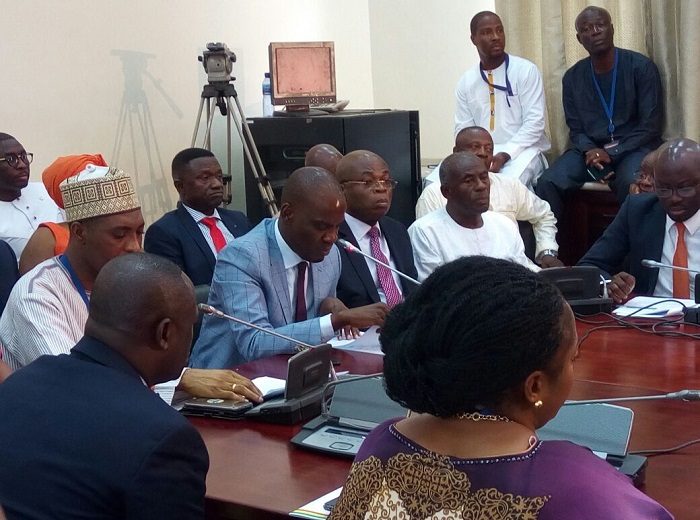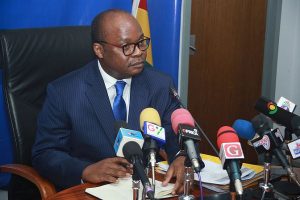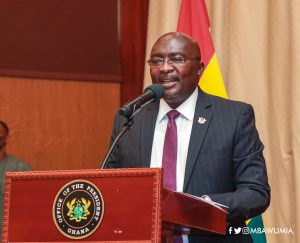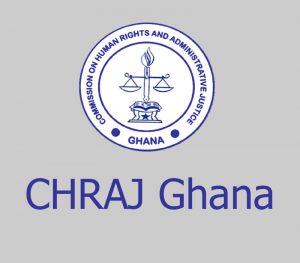The Minority in Parliament has asked the government to be candid with Ghanaians on the true state of the COVID-19 situation in the country.
The call was part of a five-point recommendation the Minority gave the government on Monday, July 5, 2021, on the back of the outbreak of the highly transmissible COVID-19 delta variant at the Achimota School in Accra.
Speaking to the media on Monday, July 5, 2021, the Ranking Member on the Health Committee of Parliament, Kwabena Mintah Akandoh, said the government must return to the regime of aggressive testing and contact tracing.
“Government must revert to its initial plan on testing by conducting routine surveillance tests, enhanced contact tracing tests, and also effective testing of all incoming travellers not just at Kotoka International Airport but also across our seaports and land borders.”
The Caucus also called on the government to within a week produce a genomic sequencing policy of the COVID-19 outbreak in the country to facilitate early detection of the new variants.
“Immediately put in measures and produce within a week an effective genomic sequencing policy for COVID-19 that is credible and effective enough to facilitate the early detection of all COVID-19 variants and the extent of their spreads within Ghanaian communities.”
“Release approved funds for the various health institutions and agencies, so they can better perform their duties. Fast-track the procurement of vaccines through appropriate channels to secure vaccines for the remaining 19 million Ghanaians it promised to vaccinate this year,” Mr. Akandoh.
GHS assurances
Meanwhile, Ghana Health Service (GHS) had earlier indicated that the country may take delivery of additional COVID-19 vaccines towards the end of July 2021.
The Director of the GHS, Dr. Patrick Kuma Aboagye, at a press briefing on the management of the outbreak in the country on Sunday, July 4, 2021, said plans are far advanced to secure some vaccines by the end of July 2021.
Dr. Kuma Aboagye also urged the citizenry to continue adhering to the established COVID-19 safety protocols.
According to him, that is the only way infections can be reduced to the barest minimum.
“The non-adherence to the COVID-19 protocols is a concern, and the confirmation of the Delta variant within the community is also a concern for us. So we are urging all Ghanaians that you don’t need any further measures and that all the existing measures still work. Washing of hands, wearing of nose masks, avoiding crowds is very important whatever the variant you have. So we all need to be sure that this is really enforced.”
“A lot is ongoing, and we have indications that we may be getting some vaccines probably towards the end of the month, but the challenge is that a lot more is going on from COVAX and the donation from the USA and of course efforts to buy.”
Below is the full statement read by Kwabena Mintah Akandoh:
Honourable Colleagues,
Members of the Press,
Ladies and Gentlemen.
We will like to thank you all for honouring our invitation at short notice to this press conference. We really appreciate your support and commitment towards disseminating our views to the members of the public.
The Minority in Parliament finds it extremely concerning the manner in which government has chosen to focus on the management of information relating to the COVID epidemic in Ghana rather than management and control of COVID-19 to guarantee the health and safety of Ghanaians.
At the very onset of our COVID-19 experience, we were all made to believe that the most important element of epidemic management was testing, testing and testing. In order to be effective at this government informed the general public that it will employ three testing mechanisms including routine surveillance which involves mass testing at specific locations, enhanced contact tracing where persons close to or living within a specified distance to infected persons will be tested and finally testing of travellers arriving within the country.
All testing services were to be offered free of charge to Ghanaians either through routine surveillance, contact tracing or on request at various hospitals and referral centres to help save lives and control the spread of COVID-19 within our communities.
This announcement brought some relief and comfort to many Ghanaians seeking some clarity on government’s interventions in the face of a ragging pandemic.
However, by June last year, not only had routine surveillance been curtailed, enhanced contact tracing which government promised had also ceased, testing was now based on making out-of-pocket payments at health facilities. As we speak if infected persons don’t call persons they have been in contact with, tell them their status and encourage them to also test; none of their contacts will be traced and tested to identify and treat infected persons within the community.
On the issue of testing arriving travellers at our borders, this is currently limited to persons arriving at Kotoka international airport leaving untested travellers arriving via ships through our sea ports or through our land borders.
Ladies and Gentlemen,
Under this atmosphere of very little or no testing in some situations, we find it rather interesting that government via the Ghana health service issued a press statements on the 22nd of June 2021 and stated emphatically that there is no community spread of the delta variant within our communities. This is indeed a puzzle because without conducting routine surveillance or mass testing and contact tracing of infected persons how can government be so sure?
We were therefore not surprised that after a few weeks of issuing that statement, just yesterday Government had to change its position and now admit that the delta variant of COVID-19 is now spreading within our communities.
Per the information gathered, the Delta variant of SARS-CoV-2 has been within several Ghanaian communities across multiple regions for quite a couple of months and instead of government sounding the alarm bells and encouraging Ghanaians to enhance their adherence to safety protocols such as hand hygiene, the wearing of face masks and the social distancing, government has at all times denied the existence of this virulent delta variant of the virus and even now is trying to limit it to some parts of the Greater Accra Region.
This in itself is an indictment on the effectiveness of measures that government has instituted at our ports to protect us all and raises questions on the accuracy of the information that government provides on the COVID-19 situation in Ghana.
Ladies and Gentlemen,
There is also currently no clear policy on genomic sequencing of samples obtained from infected persons. This is required to determine the frequency of sampling, the methodology and also which samples are to undergo genomic sequencing. The current regime, without a clear-cut sampling method to determine how often samples are subjected to genomic sequencing, is the reason why the community spread of the delta variant took this country by surprise and government needs to come up with a genomic sequencing policy on COVID-19 without delay.
We are also concerned about the allocation of resources to our research institutions namely the Noguchi Memorial Institute for Medical Research (NMIMR), the West African Centre for Cell Biology of Infectious Pathogens (WACCBIP) and the University of Health and Allied Sciences (UHAS).
It is sad that since the beginning of the year some of these institutions have been operating not having received their allocation of funds from government in order to facilitate their operations and others we are told after almost six months into the year just received a small allocation towards their operations.
Laboratories are also battling seriously for reagents and other resource allocations in order to facilitate testing. It is therefore not surprising that some of these laboratories including government facilities are charging for COVID-19 tests.
Ladies and Gentlemen,
Inasmuch as COVID-19 presents several challenges to our socioeconomic system, its main impact is on health and government must be seen to be allocating appropriate amounts of resources to the health sector. The situation in which GHc 19 billion Cedis is spent on COVID management and yet only a paltry US$100m can be accounted for within the Ministry of Health must not be allowed to continue this year.
Finally, government is still well behind its own vaccine deployment plan because of lack of commitment towards using appropriate channels to procure vaccines for the general population. Almost half of the year is gone and if the target is to vaccinate 20 million Ghanaians by close of the year then the current vaccination status of around 1 million citizens is well behind schedule.
Should government even have all the 38 million vaccines required to vaccinate the 19 million Ghanaians left to be vaccinated, that plan to vaccinate the remaining 19 million Ghanaians will require an average in excess of 212,000 vaccinations per day till the end of the year. That logistical operation will require a lot of resources to achieve.
Government should therefore come clean on the way forward in terms of vaccinations. Are we still rolling out the vaccination plans government proposed at the beginning of the year or we should expect some variations? And if there are variations government should quickly endeavour to inform Ghanaians.
Ladies and Gentlemen,
To conclude, we will like to call on government to as a matter of urgency do the following:
Revert to its initial plan on testing by conducting routine surveillance tests, enhanced contact tracing tests and also effective testing of all incoming travellers not just at Kotoka but also across our sea ports and land borders.
Immediately put in measures and produce within a week an effective genomic sequencing policy for COVID-19 that is credible and effective enough to facilitate the early detection of all COVID-19 variants and the extent of their spreads within Ghanaian communities.
Release approved funds for the various health institutions and agencies so they can better perform their duties.
Fast-track the procurement of vaccines through appropriate channels to secure vaccines for the remaining 19 million Ghanaians it promised to vaccinate this year.
Be candid with Ghanaians on the real COVID-19 situation in Ghana.
We believe that if government follows our advice, the murky situation in which Ghana finds itself with regards to the management of COVID-19 will improve and the general health safety of Ghanaians and the recovery of our economy will improve.
May God bless our homeland Ghana and may He give our government the commitment and resources to see us through the scourge of this pandemic.
Thank you.
Kwabena Mintah Akandoh (MP)
(Ranking Member on the Select Committee on Health and MP for Juaboso)







